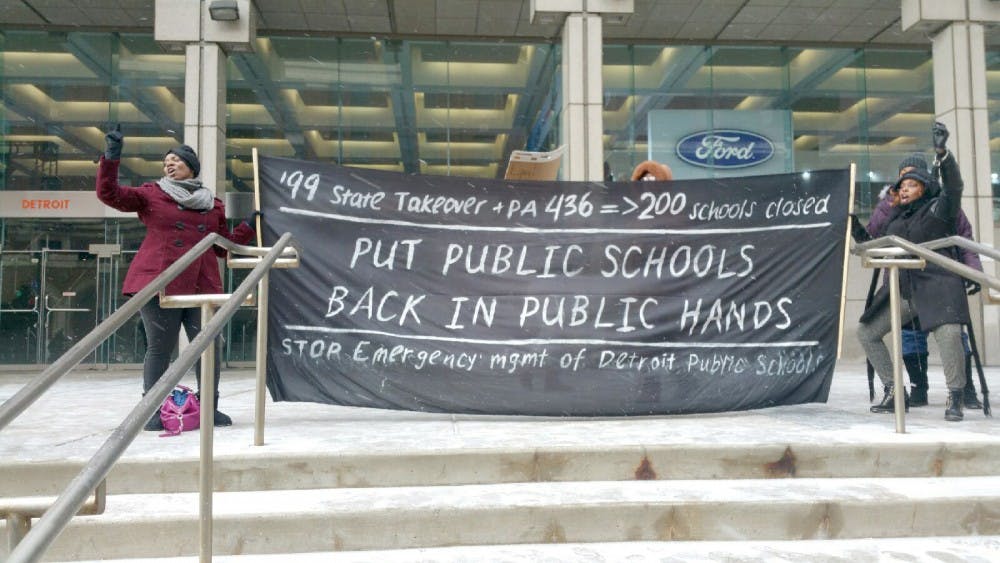Students and teachers in the Detroit Public School system have been operating under dangerous, unhealthy conditions for years. For the past few months, DPS teachers, students and parents alike have been fighting to improve the continually declining conditions of the schools.
The conditions of schools are not always top notch; a dim light or a faulty water fountain here or there is common. But the conditions of schools in DPS are worse and have been in a slow decline for years.
Consider something as basic as school books. “My English class books are falling apart,” said senior Jacqueline Walker. “We have a book – a binder – for book pages that have fallen out.”
In past years, DPS was in good condition. There was more awareness in the community, teachers felt appreciated, and schools received better resources. Now teachers feel like they don’t matter.
“I would think [Michigan Gov. Rick] Snyder would oversee any kind of decision to some degree,” said an employee of King. “Snyder did choose Earley, so he should’ve known what he was choosing.” Snyder appointed Darnell Earley as the DPS emergency manager in January 2015. Earley resigned that post in February 2016.
Recent investigations have found Detroit’s schools have mold growing in corners, overcrowded classrooms, classes with no certified teachers, barely enough textbooks for classes, numerous rodents, cold classrooms, leaking pipes, and more. Not only are these conditions hazardous to students’ and teachers’ health, but the conditions also have an unhealthy effect on students’ state of mind.
To call attention to the horrendous school conditions, DPS teachers staged sick-outs in January. The sick-outs consisted of a majority of teachers calling in sick, so as to force schools to close for the day. One day, press reports said, 88 of the district’s 97 schools had to close due to the sick-outs.
The sick-outs were controversial. Some parents and students disagreed with this form of protest. They believe the sick-outs hurt the students more because they couldn’t go to school.
“I felt betrayed,” said junior Tina Boyd. “They tell us we gotta get our education. Well, if you’re not here, how are we going to get it?”
On the other hand, some found that this was a good, effective method of protest and a lot of students support their teachers.
“I feel it’s for a good cause,” said junior Markel Wright. “I think that every school, every teacher, in DPS should do it together.”
To show support for their teachers and attempt to make their voices heard, DPS students executed a series of walkouts. School administrators tried to stop these walkouts. One school attempted to suspend students who took part for five days. At King, the administration sent out a warning letter which read in part, “Demonstrations or protests that disrupt the normal educational process are not protected.” None of this deterred the students of DPS.
“I believe the students did theirs because a child’s voice is more powerful,” said class president Jana Goodwin.
On the other hand, a number of students believed these walkouts were unorganized and could have used the guidance of an adult. Some believed students should protest in a different way.
“I think the student walkouts should be transferred to student sick-outs because it would probably be more organized,” said Walker.
Despite differing opinions on the tactics used to draw attention to the problem, parents, students, and teachers alike agree that DPS conditions need to be addressed as soon as possible.
“I feel that something needs to be done about it,” said Wright.



